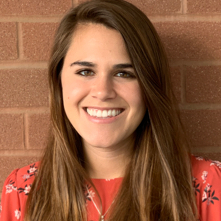Are you a therapist specializing in eating disorders? Maybe you work with several clients struggling with disordered eating. But you aren’t a specialist. Perhaps you’re reading this because you are worried about some of your clients. And their relationships with food. You might not know where to start when you’re assessing a client for a higher level of care.
Part of working with eating disorders is the screening process. In other words, clinicians must judge the situation. Next, they decide whether or not outpatient care is a good fit. I am a dietitian specializing in eating disorders. Therefore, I thought it would be helpful for me to write a blog about assessing for a higher level of care for eating disorders.
I am the owner of an eating disorder nutrition practice in Maryland and Virginia. We have three locations in College Park, Maryland. Columbia, Maryland. And Alexandria, Virginia. We see clients virtually in Colorado. Pennsylvania. Maryland. and Virginia. We work with clients with various eating disorders. For example, anorexia, bulimia, and binge eating disorder are just a few. Additionally, we work with avoidant restrictive food intake disorder (ARFID), compulsive exercise, and atypical anorexia. There are 7 eating disorder dietitians at Courage to Nourish.
So, what are some things to look for when you are assessing a client for a higher level of care for eating disorders?
Medical stability
The number one thing to look for is medical stability. If a client is physically in danger, it is important for them to get more support. In order to avoid long term harm. As a dietitian, it is outside my skill set to judge clients for medical stability. This is where a physician comes in! Refer your clients to their PCP for vitals, labs and any other assessments a physician thinks is necessary.
Not a doctor? Here’s what to look for:
Like I said, I’m a dietitian. I am not qualified to do a full physical assessment. However, there are still signs I can look for. Collaboration is key. If I am concerned about a client, I’m sure to discuss it with my client’s doctor.
Signs of medical instability:
- Fast weight loss. (Regardless of client’s body size).
- Dizziness when standing up.
- Lightheadedness.
- Headaches often.
- Chest pain.
- GI issues. (May or may not be a sign of malnutrition).
Behaviors to look for:
- Frequency and severity of purging.
- Frequency and severity of bingeing.
- Calories eaten.
- Laxative use.
- Frequent and lengthy exercise (without eating enough).
Thoughts about food
We need to understand how obsessive clients thoughts are with body, food and exercise. If the thoughts are often and continuous, it might be difficult for a client to make behavior changes. Especially if they are interrupting a client’s everyday life. When the ED voice is loud and overbearing, it can be helpful to work through some of these thoughts at a higher level of care.
Motivation
Motivation is the client’s ability and willingness to make changes on an outpatient level. Of course, a client is motivated if they are seeing you! That is so awesome and brave of them. However, making changes to support recovery requires consistency and repetition. For instance, food and thought challenges need to occur often. This can be hard for some clients to do without the support of a HLOC. And that’s totally okay. Eating disorder thoughts and urges get worse at first. Therefore, some clients need additional support to push through.
Safety
In addition to medical stability, we also want to check for physical and mental safety. Maybe a client is having thoughts about harming oneself. In that case, it might be time to refer to a higher level of care. By all means, we want to keep the client safe.
Behavior usage
Additionally, we need to judge how often. And the severity of behavior usage. Examples of behaviors are restricting, binging, and overexercising. Other are chewing and spitting and/or using laxatives. Behavior usage will look different depending on the client. This is not a full list of behaviors. You will need to provide a safe space for clients to share their behaviors with you. The more often and intense these behaviors are, the more likely a higher level of care would be a good fit. Continue to monitor behaviors. Because an increase in behavior usage could be a flag for more support.
Family involvement for adolescents
I have worked with many adolescents and families who did not want to go to higher level of care. Which is understandable! It can be so hard to send a child away. When working with families and children, it is possible that the family will be able to work with you to manage the eating disorder. I have worked with many families whose adolescents were able to recover on an outpatient level. We would meet weekly. I would coach the parents in supporting their child. I have also worked with a lot of families whose child needed a higher level of care. That is okay too. This is an added layer of complexity. But something to look for.
I would like to highlight that not everyone has access to treatment. A higher level of care requires resources like money. And/or access to solid health insurance. Additionally, many individuals cannot take off work. Or leave school. Or leave kids at home in order to attend a HLOC. Sometimes working with an outpatient team (which also requires access) is the best option for a client. And that is okay. Once again, if the client is seeing you, that means there is a level of motivation and readiness. Some part of them wants to get better. It’s our job as clinicians to take baby steps. In order to support little recovery goals along the way.
Additionally, Bobby Boteler and I offer supervision for clinicians who are looking to learn more about eating disorders. Our goal is to support clinicians in improving their confidence level. Please visit our supervision page!
Closing Notes
For more information, contact us at Courage to Nourish today. Our eating disorder dietitian nutritionists are located in College Park, Maryland, Columbia, Maryland, and Alexandria, Virginia, Colorado, and Pennsylvania. Read more about the Courage to Nourish team here. We’d love to support you in eating disorder recovery.

Helping my clients cultivate meaningful connections and interests outside of their eating disorder is a true passion of mine. I like to think my clients and I are on a team to navigate recovery. I love working with high school and college students as well as athletes seeking to have a better relationship with exercise. I am a proud anti-diet dietitian and work with my clients through a Health At Every Size © and intuitive eating framework.

